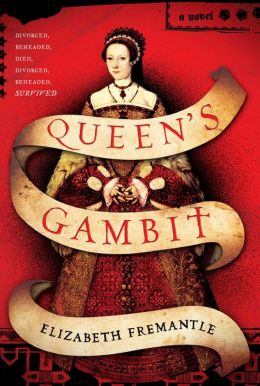Sharon Cameron first
came to my attention as an author when I read her first book, The Dark
Unwinding, last fall. I fell in love with it, finished it in two days, and
have been combing through piles of Advance Reader Copies ever since, looking
for the next installment of the story. Welp, I finally found it, and it's called
A Spark Unseen.
But before I tell you
about this second book in the series, let me introduce you to our protagonist,
Miss Katherine Tulman, as I first met her in The Dark Unwinding. She was then the orphaned ward of her aunt
Alice in London, where she was little better than a servant. Her only goal in
life was to secure enough funds of her own to escape her aunt and useless
cousin, and that goal began to seem possible when Katherine was sent to
Stranwyne Keep, her grandmother's estate, on Alice's business. The estate had
been held by Katherine's uncle, her father's brother, for years. But rumor had
been circulating that he had lost his mind, and so Alice jumped on the
opportunity to secure the estate for her own son. She did this by sending
Katherine to observe her uncle and attest to his lunacy upon her return to
London. In exchange, Aunt Alice would ensure that Katherine was not completely
destitute.
Katherine is
determined to send her uncle "Tully" away to an asylum and finally
win her freedom from the vile Aunt Alice. But once she arrives at Stranwyne,
she discovers an entire world built around her rather unique uncle. The
townsfolk think of him kindly, despite his many oddities and reclusive nature,
and the town's commerce is thriving with the pottery that is produced there.
The estate is well-managed, and in no real need of Aunt Alice's intervention.
Indeed, Katherine becomes more and more
aware of what she would be destroying should she choose to put her uncle in an
asylum, as she well could. But the marvels that he designs in his workshop with
the help of the handsome but aloof Lane fascinate her, as they do Ben Aldridge,
who is studying Uncle Tully's creations and how they work.
As her time at
Stranwyne continues, Katherine becomes more and more convinced that Uncle Tully
must not be committed. But as her certainty grows, she becomes less and less
sure of herself, and her strange bouts of lost memory and strange states of
mental vacancy worsen. Is she losing her own mind just as she gains the trust
and possibly love of Uncle Tully's closest caretakers (including Lane, a silent
boy named Davy and his bunny, and the dour Aunt Bit)? Will she be packed off to
an asylum just as poor Uncle Tully?
*SPOILER ALERT* I'm happy to report, dear reader, that she is not. In fact,
it turns out that poor Katherine is being drugged with opium by the seemingly
nice Ben Aldridge. He is actually a French spy, who plans on using Uncle
Tully's innovations as the basis for a new weapon that we would today most
closely liken to a torpedo. After nearly killing Katherine and flooding the
lower village as well as part of Stranwyne Keep, Ben tries to make his escape
with Uncle Tully's prototype device. However, Katherine manages to blow up his
small boat as he's making his getaway. Ben is presumed dead, although his body
is not recovered. In the fallout from all the intrigue and Katherine's refusal
to go along with Aunt Alice's plan to take over Stranwyne, several things
happen that prove important in A Spark Unseen: Aunt Alice comes to
Stranwyne for an update and finds that Katherine and Lane are a couple of
sorts. This is troubling since Katherine is a lady and Lane a servant.
Additionally, Katherine discovers that her father left her a very large
inheritance, and that Aunt Alice never had much of a hold on her to begin with.
Katherine becomes the steward of Stranwyne Keep with the help of Mr. Babcock,
the estate's solicitor. But this happy new life is clouded by the arrival of
Mr. Wickersham, an agent of the British government. Troubled by Ben Aldridge's
actions and by what the French could be planning, Mr. Wickersham enlists Lane
with his French heritage to travel to France and spy for the British.
This is where
A
Spark Unseen picks up, with Katherine safely in charge of a once again
thriving Stranwyne Keep and her uncle happily at play with his mechanical
creations. But there has been no word from Lane in months, and most of the
household has lost hope that he is still alive. After two men attempt to kidnap
Uncle Tully out of Stranwyne, Mr. Wickersham arrives with the intention of
bringing Katherine and Uncle Tully to London to continue work on a British
prototype of a torpedo. Uncle Tully, in his mental state, does not react well
to the new and unknown. So to ensure that he does not become a lab rat to the
British government, Katherine and her faithful maid Mary contrive to fake Uncle
Tully's death and take him away to Paris. Of course in addition to protecting
her uncle, Katherine is determined to find Lane. But the situation is much more
complicated than she imagines, and soon she's in over her head with both French
and British spies, nosy English neighbors, a missing Mr. Babcock, the Emperor
of France, Ben Aldridge, and still no sign of Lane. For just how long can one
hide someone as brilliant as Uncle Tully in a city like Paris?
Please, please, please
don't be fooled by the covers on these books. They look like ditzy teen
romances, yes, but they belie the intricate story within. Katherine is a strong
female protagonist who sometimes gets in over her head, but recognizes the
hopelessness of anything other than slogging onward, and Mary is a wonderful,
endearing friend and coconspirator to Katherine. In addition to Lane (who is
still self-righteous enough to annoy me sometimes but it works well in context)
and Mr. Babcock, a host of new characters is introduced including Frenchmen Henri
and Jean Baptiste, and Josef, the return of Ben Aldridge under a different
name, and the revelation of Mrs. Hardcastle as an ally.
The introduction of electricity to Uncle Tully's work is another stroke of
genius, although not as much happened with it as I would have imagined until
the final scene with Uncle Tully and Ben Aldridge. But I have a feeling that it
will be playing a larger role in the next book, as will Lane's heritage. Ben's
near insanity was very well written, and entirely believable. Similarly believable
were Lane's actions while he was missing, although again here his attitude
about not being good enough for Katherine made me "harumph" and shake
my head in disapproval.
Uncle Tully in himself
is a magnificent character, not just because he provides a focal point for the
evolving story but because of who he is. If I had to make a guess, I'd diagnose
Uncle Tully with some form of autism. He is brilliant and often single-minded
in his work, creating the most fascinating machines from inside his own head.
In addition, he has a preoccupation with time and numbers, and loves clocks,
Lane, Katherine (whom he calls "Simon's baby" in reference to his
brother, Katherine's father) and Marianna, who was Uncle Tully's mother. He is
sweet and endearing but also sometimes frightening in his reactions to things
that he perceives as "not right" and to things that interrupt his
personal schedule. Katherine's struggle to understand and provide for her uncle
are rewarded with the appreciation she develops for him and his talents, and
the eventual demonstrations of love that he shows her. It's a beautiful sort of
relationship that is often overlooked by popular literature, and I give an
(extra) tip of my hat to Cameron for depicting it so beautifully.
So I tell you, get up
and go find yourself a copy of
The Dark Unwinding as soon as your
favorite local bookstore opens! If you're a sucker for steampunk and Victorian
England like I am, you'll adore it. And while you're at it, check out the
inspiration behind Stranwyne Keep
here at Sharon Cameron's website! The
second book in the series,
A Spark Unseen, will be released in October
of this year. Check with your bookstore to find out about preorders!


